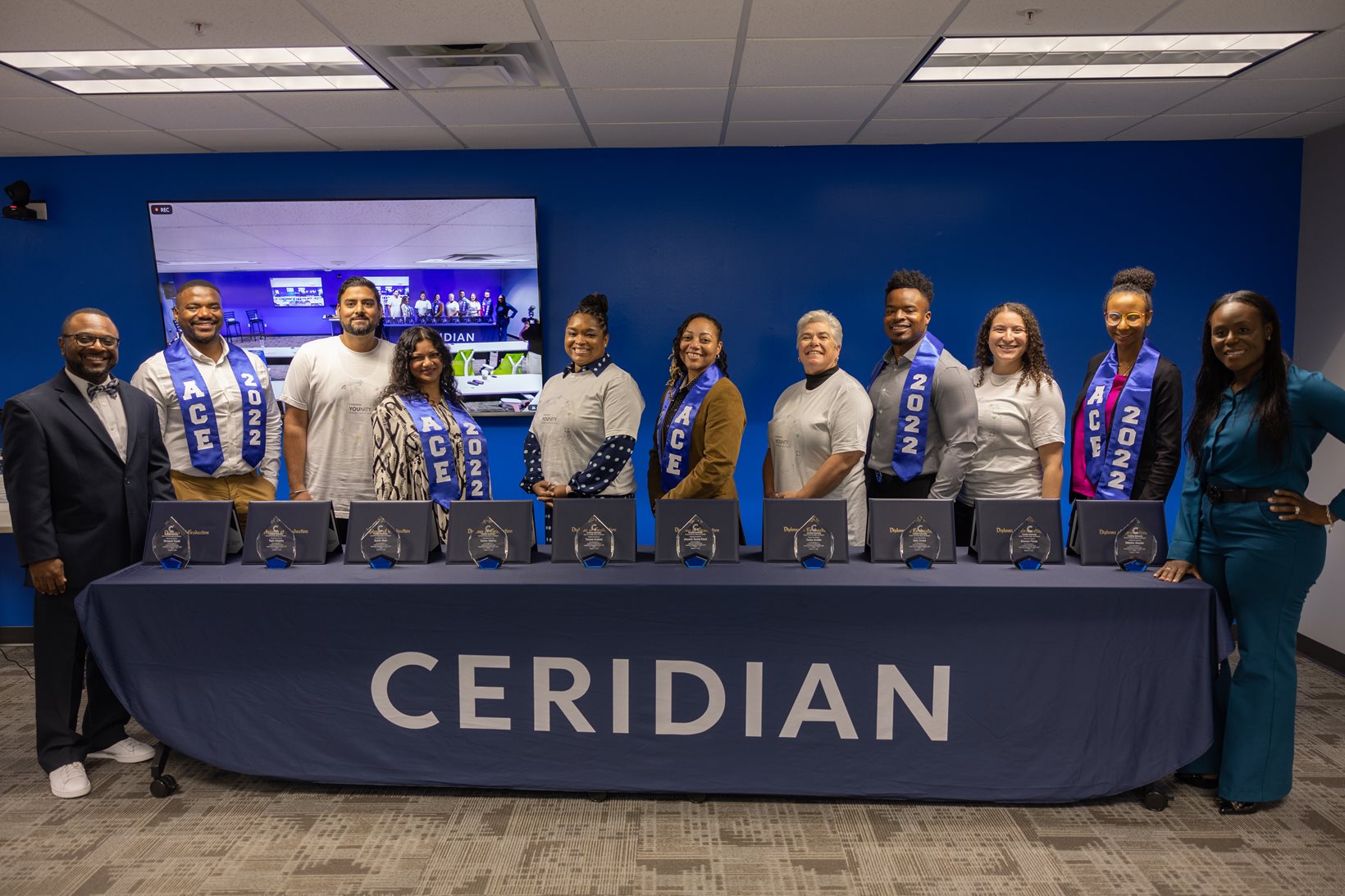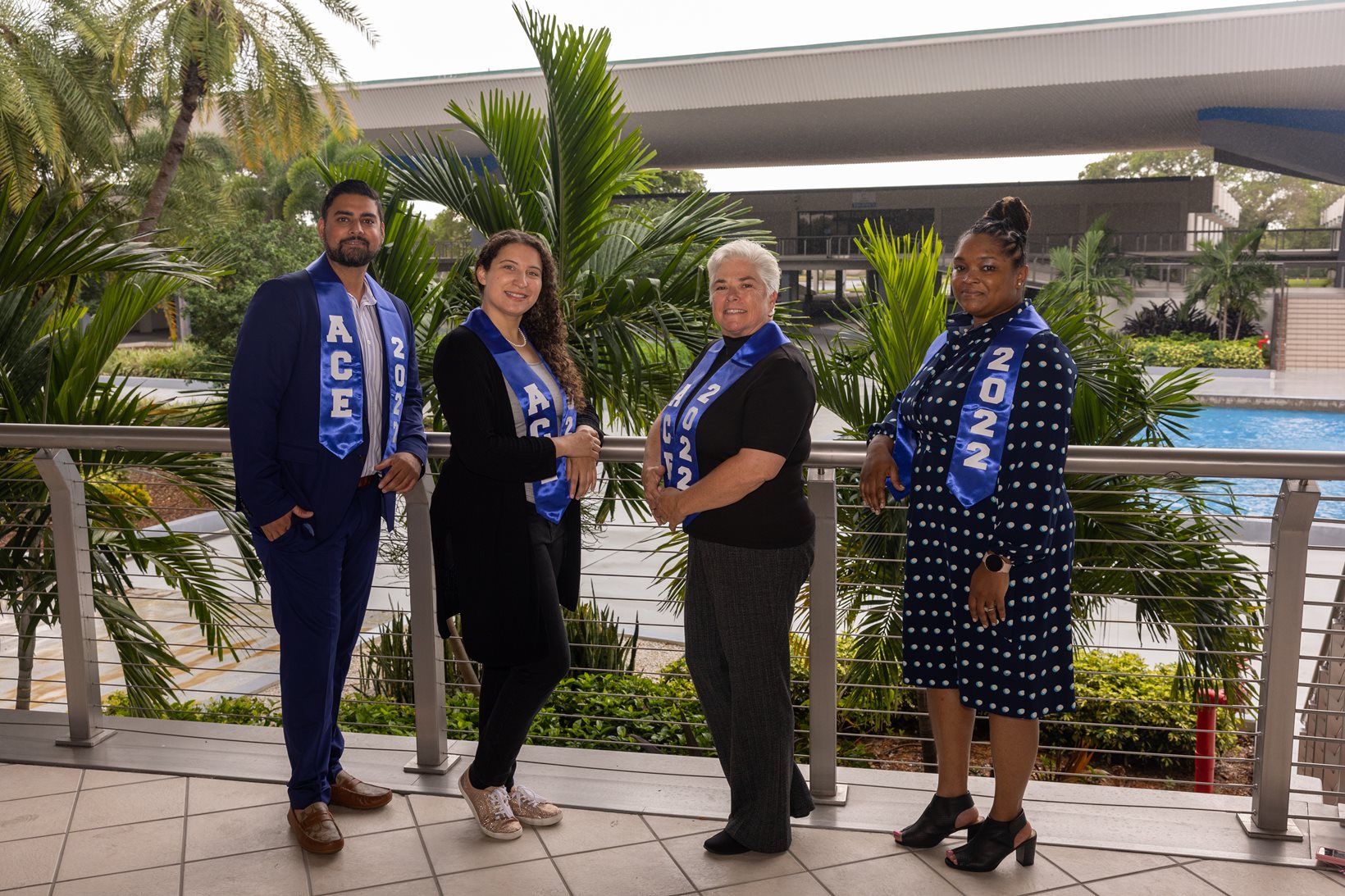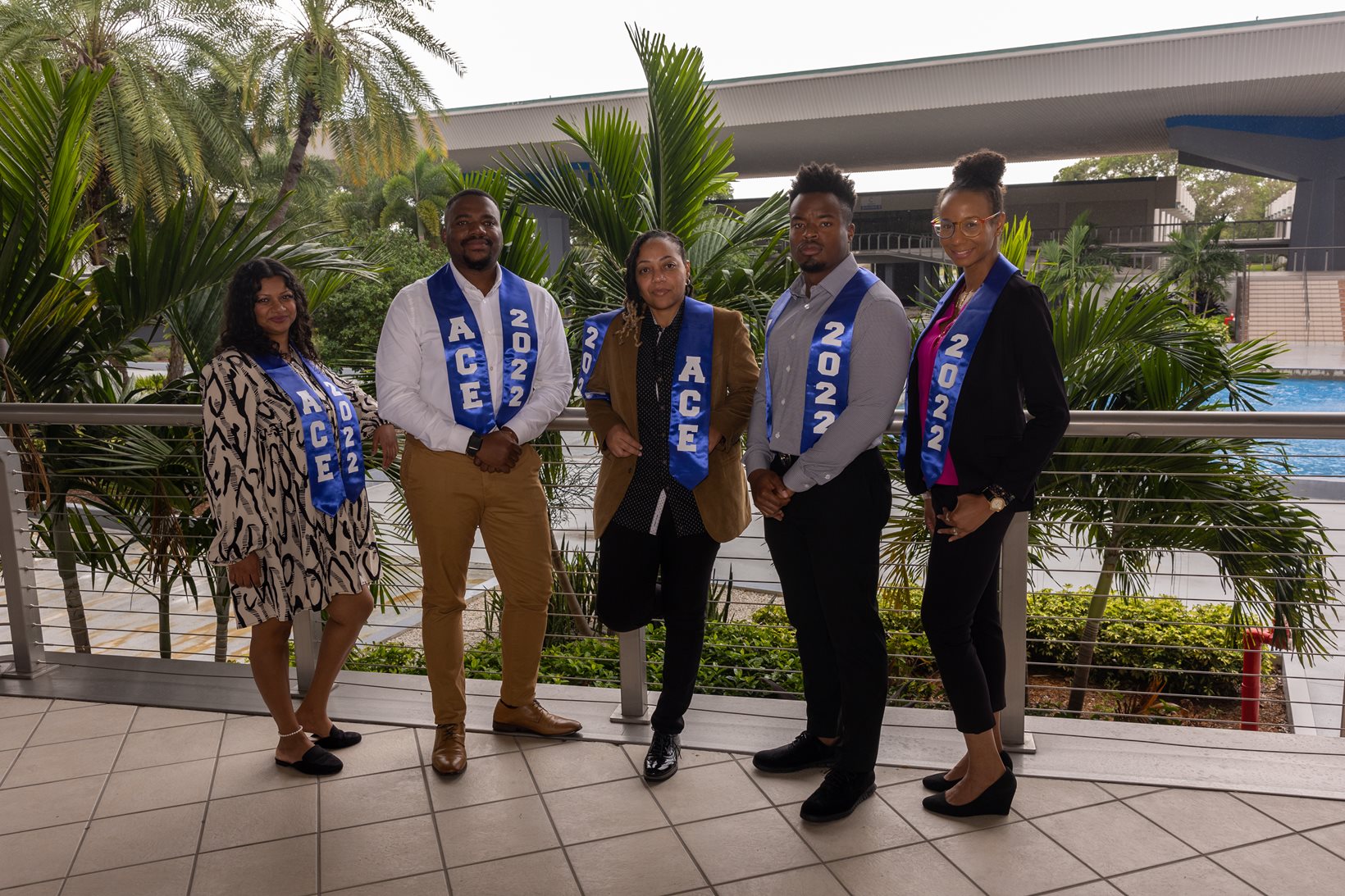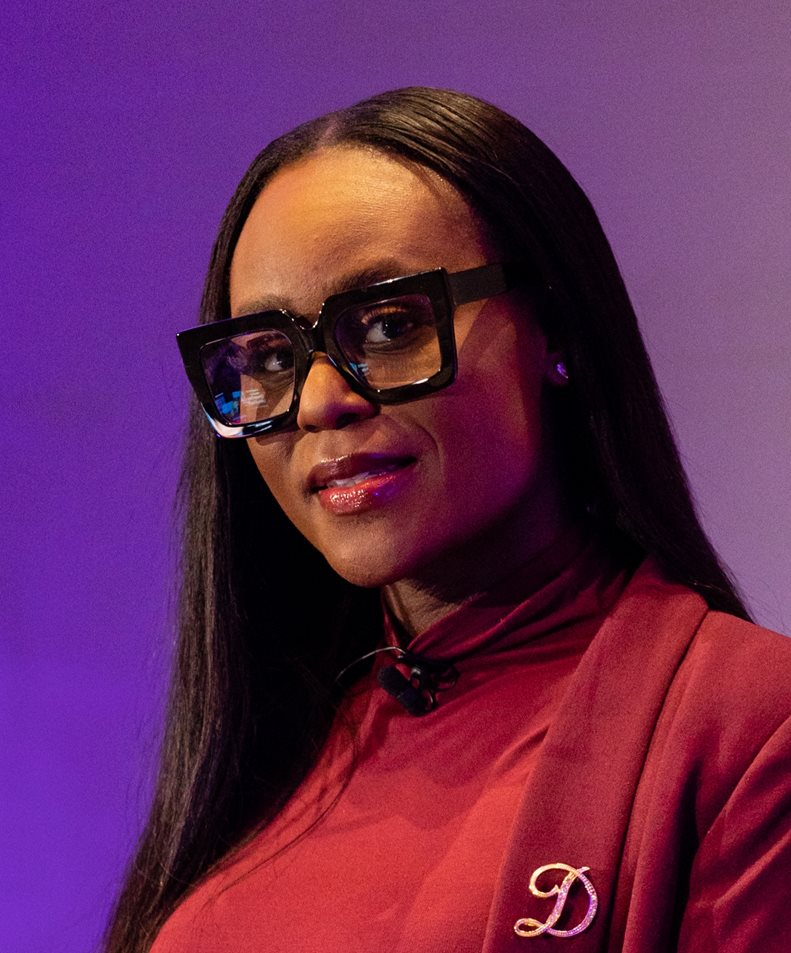DEI in action through Ceridian’s Achieving Corporate Equity program
2022 marks the launch of Ceridian’s Achieving Corporate Equity (ACE) program. Explore our leadership development initiative designed for underrepresented minorities.

Table of Contents
Table of Contents
“Becoming an ACE graduate has been a highlight of my career. I learned so much valuable information that I’m excited to translate into action toward helping other under-represented minorities advance not only their careers but their sense of belonging here at Ceridian." - Kelly Doane, Learning and Development Principal at Ceridian
At the center of how Ceridian does business is what we call the Our Way values, one of which is equity. We’ve been creating more DEI initiatives at work this year, the latest being our Achieving Corporate Equity, or ACE, program.
What is Ceridian’s ACE program?
Ceridian’s Achieving Corporate Equity program is all about bringing underrepresented minorities, also called URMs, to the table throughout the organization.* Historically, URMs don’t receive the same professional resources, leadership training, and promotion opportunities.
The Society for Human Resource Management (SHRM) states that “Black individuals make up 13 percent of the U.S. population but account for only 8 percent of employees in professional roles. Black professionals hold only 3.2 percent of all executive or senior leadership roles and less than 1 percent of all Fortune 500 CEO positions.”1
Additionally, McKinsey reports that “LGBTQ+ women…are more underrepresented than women generally in America’s largest corporations. Just four openly LGBTQ+ CEOs head these corporations, only one of whom is female and none of whom is trans.” 2
The ACE program is a holistic, differentiated leadership development program that addresses the psychological and professional development of underrepresented minorities. The initiative is designed to remove systemic barriers, including racial and culturally charged stereotypes, microaggressions, and falsehoods of educational and leadership incompetence that have perpetuated the URM struggle in achieving career advancement.
McKinsey reports that “more Black workers are in jobs with less opportunity for advancement.”3 In fact, “Black employees are overrepresented in frontline jobs (18 percent) compared with managerial jobs (9 percent),” and “frontline jobs largely do not connect Black employees with sufficient opportunities to advance.”3
The program itself lasts 16 weeks, providing participants with individual and group coaching, mentorships on leadership, and executive sponsorship. Learning modules cover wide-ranging professional topics, including organizational management, professional networking, business communication, and career development. The ACE program culminates in a capstone project that groups present upon graduation.

Graduation day
Ceridian is proud to announce the following outstanding participants as the first graduating class of the ACE program: DiAndre Atwater, Tarmar Bhebhe, Yanice Boothe, Kelly Doane, Yvonne Graham, Toyin Odujebe, Sharese Pierce, Hanspaul Saund, Jhenelle Tucker-Faust, and Sumin Want. And a special congratulations to team “Bad Ace” who won this year’s capstone competition with their #iBelongHere initiative.

The future of ACE
Equity-focused programs don’t work unless they have the support and influence of executive leadership. In fact, ACE graduates will receive an executive sponsorship to further their mentorship learning opportunities. We’re excited to see these mentorships grow in the months to come.
And the future of ACE is already happening. The end goal of our ACE program is to improve equity throughout our organization, especially in our promoting cycles. We’re happy to say that 80% of this year’s ACE participants have already been promoted internally or received stretch assignments. Furthermore, one-third of the women participating in the program have been promoted to Manager or Senior Manager roles.
Here at Ceridian, we’re excited to keep the ACE program going for years to come. After this year’s first and only cohort, we’re planning to launch two cohorts in 2023.
Access is a central aspect of equity. Without access, underrepresented minorities in organizations may continue being overlooked and under-resourced. We’re trying to change that narrative and grow our commitment to diversity, equity, and inclusion.

* We define an underrepresented minority as a subset of a population that holds a smaller percentage within a significant subgroup than the subset holds in the general population.
[1] Lisa Rabasca Roepe, Barriers for Black Professionals, SHRM, February 2021.
[2] Diana Ellsworth, Ana Mendy, and Gavin Sullivan, How the LGBTQ+ community fares in the workplace, McKinsey, June 2020.
[3] Bryan Hancock, Monne Williams, James Manyika, Lareina Yee, and Jackie Wong, Race in the workplace: The Black experience in the US private sector, MicKinsey, February 2021.
You may also like:
Ready to get started?

